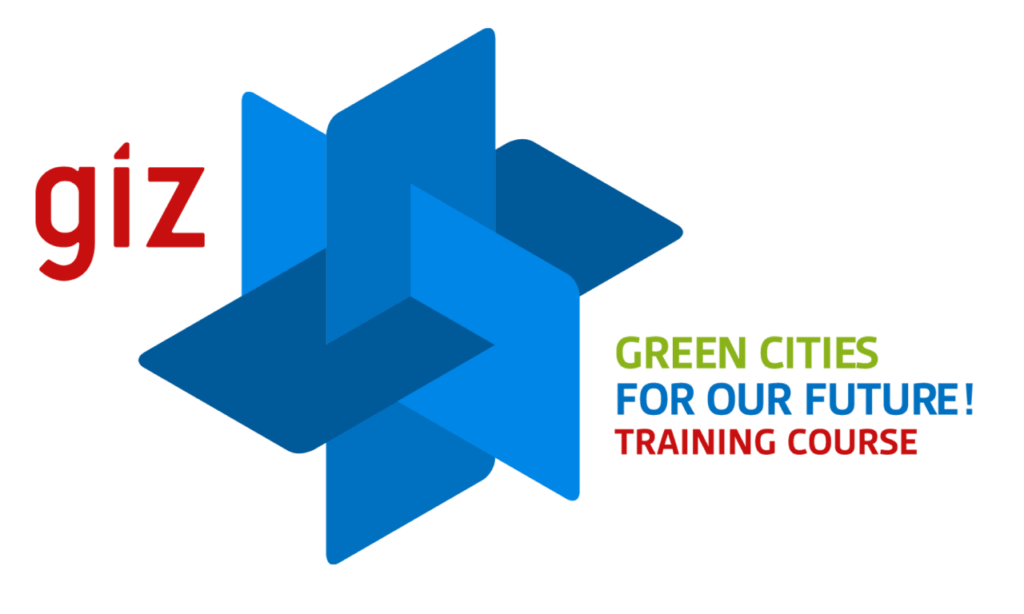
‘Green Cities for our Future’ is a GIZ- video based training course on low-carbon and sustainable urban development in Germany. It contains 5 course units on these 5 topics:
Each course unit contains training material for about 2,5 hours length structured in 6 sessions each with different formats ranging from Thematic Course Introductions offered by the lead course host to Thematic City Videos featuring state-of-the art projects and their actors in selected German cities over Virtual City Walks to an Expert Talks session meant to acquire deeper understanding of the contents. A pdf-handout with Further Ressources inc. detailed Project Profiles as well as a questionnaire facilitating reflection and transfer to participants’ contexts rounds up the training material packages.
The Training Courses can be done individually as a self-study, or they can also be used as training material by trainers and facilitators in online or off-line courses.
This course was published in June 2021 as part of the GIZ project ‘Sino-German Urbanisation Partnership’(SGUP), commissioned by the German Federal Ministry for the Environment, Nature Conservation and Nuclear Safety. The SGUP is funded by the ministry’s International Climate Initiative (IKI), which supports bilateral policy dialogue and strengthens capacities for climate-friendly, sustainable urban development through inter-city exchange of experience and technical support.
The training course was produced by CONSTELLATIONS, a company based in Berlin and Shanghai dedicated to designing and facilitating programs for “Learning, Leading and Collaborating for Sustainable Futures’. CONSTELLATIONS is also the host the ‘CITYMAKERS China-Europe’ Network that was actively involved in advising and producing this course.
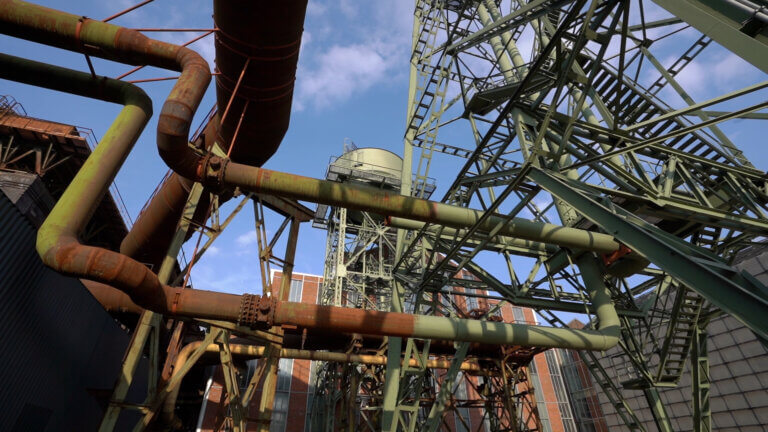
This course unit examines concepts and strategies of sustainable urban revitalisation, and the renewal of German cities, using the example of the Ruhr area. The unit aims to address the challenges of structural transformation and how these can be managed. Special emphasis is placed on the concepts of ecological renewal and restoration, also as a key to economic and social progress, the transformation of industrial heritage; and the drivers of urban revitalization.

This course unit examines different sustainable urban regeneration strategies in quarters of historical and cultural significance. It showcases how urban renewal and development can happen within the existing stock of buildings which either keep their original function (e.g. housing), or are converted for new functions (e.g. formerly administrative buildings converted to mixed used building, both with the intention to preserve the history as well as to produce less CO2 compared to newly constructing.
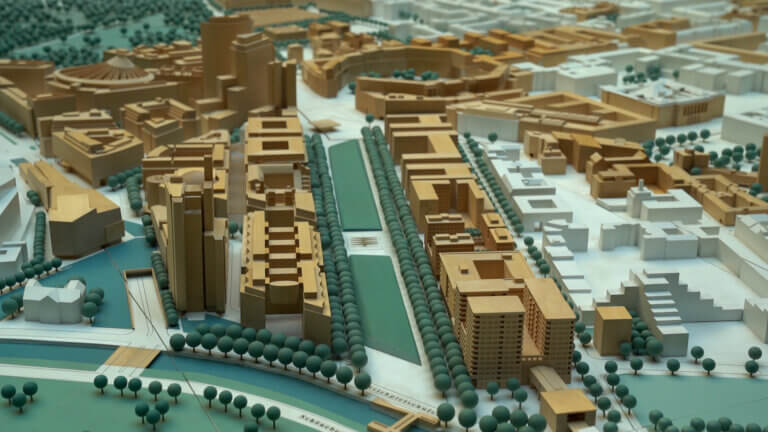
This course unit examines concepts of planning and implementing new energy-efficient, carbon-neutral, eco-friendly neighbourhoods, as well as various means of integrating energy efficiency and eco-friendliness into existing urban quarters. Special emphasis is put on neighbourhoods with an integrated, comprehensive approach, including adaptation strategies, mobility concepts and social integration.
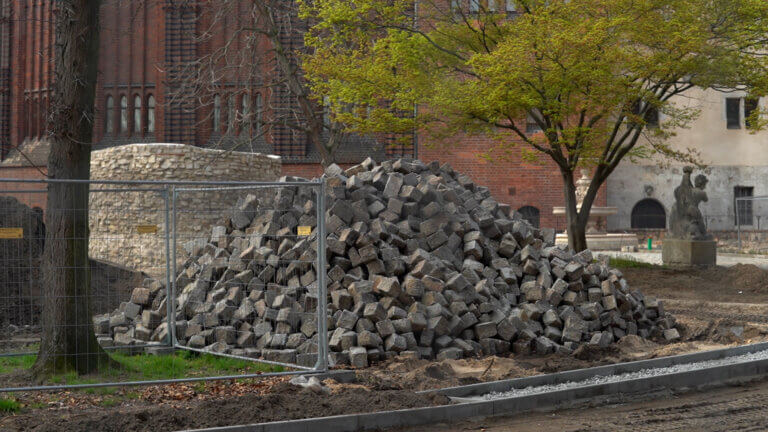
This course unit strengthens the understanding of the relation between the growing generation of construction and demolition waste and the overuse of natural resources. Alternatives, such as recycling and re-use are presented while outlining that avoiding waste and exploitation starts best when designing and planning buildings in a sustainable manner. Various solutions are explored, including the use of recycled construction materials and related procurement policies, the direct reuse of materials, the planning of multifunctional and re-constructible building, and the use of sustainable construction materials.
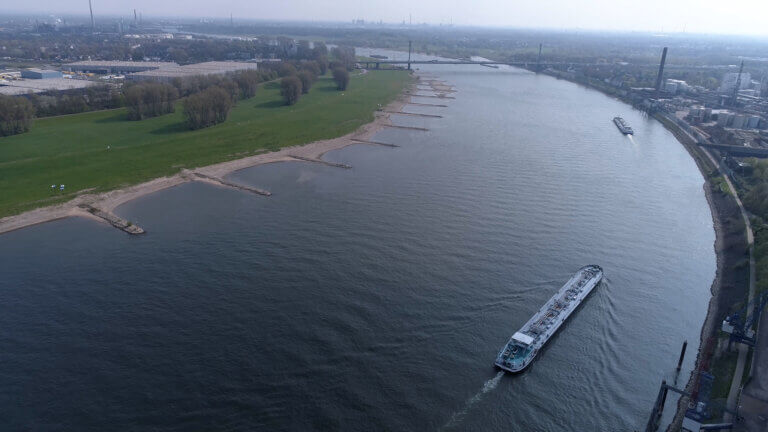
This course unit examines different adaptation strategies applied by German cities in order to reduce the negative impact of various manifestations of climate change, such as floods, heat waves and droughts. Policies, instruments, and means and activities to incorporate adaptation needs into urban planning and development are described here.

Complementary to these training videos featuring sustainable city innovation from Germany, four urban innovation cases from China were investigated in the frame of the SGUP-Sino-German Urbanisation Partnership Program. The urban innovation cases were produced by the consulting company NordiQ and its team in Beijing. They are meant as an additional impulse and shall also contain the message: In order to meet global environmental and climate change challenges it is important that knowledge transfer is two-dimensional and that we learn from each other across cities in different countries. In fact what will matter in the future is moving from learning from each other to innovating together.
Published by: GIZ, June 2021
Training Course Host & Content Advisory: Monika Zimmermann, former Deputy Secretary General, ICLEI – Local Governments for Sustainability
Implemented by: CONSTELLATIONS International GmbH, Berlin and it’s CITYMAKERS China-Europe Project Team
Katja Hellkötter – Project Management Lead & Content Advisory
Kika Yang – Video Production Lead & Thematic City Video Chief Editing
Silvan Hagenbrock: Producer, Author, Editor of City Walk Videos and Content Editor of Thematic City Videos #1 und #5
Ute Freund – Videographer & Camera
Randolfe Camarotto – Camera & Post Production
Gerrit Manke – Content Research & Editing, Co-Editing Thematic City Videos and Co-Author Further Resources
Jan Siefke – Production Logistic Assistance
Marcus Lepie – Art Dicrection Graphics & Visual Identity
Estefania Cadena – Motion Graphics
Alice HUANG, Enter Consulting (Shanghai) Co. Ltd – Chinese Translation and Subtitles
Website Programming & Digital Implementation: AKRYL digital agency GmbH
Copyright: Deutsche Gesellschaft für Internationale Zusammenarbeit (GIZ) GmbH
These videos and complementary material may be reproduced for not-for-profit purposes, provided the source is acknowledged. Further information: www.transition-china.org
Disclaimer: The content in this training course expresses the opinion of the authors and is not necessarily representing the position of the cooperation partners of the programme.
Berlin, June 2021
